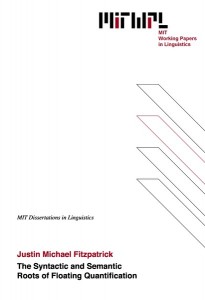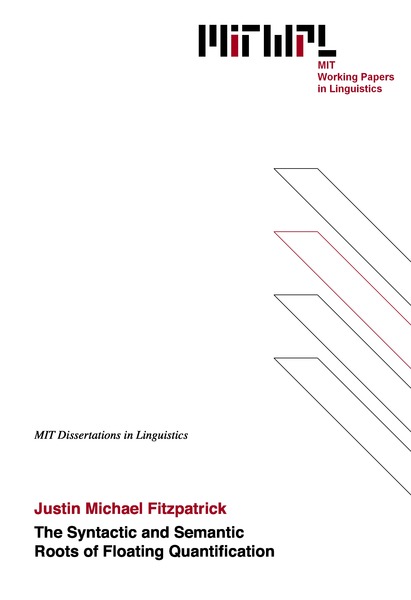The Syntactic and Semantic Roots of Floating Quantification
J. M. Fitzpatrick, 2006


Save $9.95 (24%) if bought together with Syntax and Discourse in the Acquisition of Adjunct Control
This dissertation develops a two-part analysis of floating quantification. Based on a study of floating quantifiers in a variety of languages, I argue that this type of split constituency is not a uniform phenomenon. Instead, certain floating quantifiers are related to their nominal associate by syntactic transformation (the stranding approach, Sportiche 1988; Miyagawa 1989) while others are related only semantically to this element (the adverbial approach, Dowty and Brody 1984; Bobaljik 1995; Doetjes 1997). I show that each type of floating quantifier imposes a different restriction on the movement of its nominal associate. An adverbial floating quantifier restricts its associate to A-movement, while a stranded floating quantifier restricts its associate to A'-movement. These two classes of quantifiers also divide along semantic lines: adverbial floating quantifiers have exhaustive semantics, while stranded adnominal floating quantifiers are non-exhaustive.
The analysis developed here provides an explanation for these syntactic and semantic differences. The syntactic behavior is linked to the structural make-up of the two types of elements and to more general syntactic phenomena, including cross-over and locality differences between A- and A'-movement. Thus the behavior of floating quantifiers can be used as a tool for the investigation of differences among movement types. The semantic difference is tied to the syntax of partitivity.
This analysis not only provides solutions to the puzzles of floating quantification, but raises other more general issues. In particular, it forces us to reevaluate the interplay of A- and A'-movement in a derivation. I show that in some cases a phrase that would normally undergo both A- and A'-movement in fact undergoes direct A'-movement. The results presented here should also provide a model for the analysis of other types of split constituency across languages.
Thesis Supervisor: Norvin Richards, Associate Professor of Linguistics




